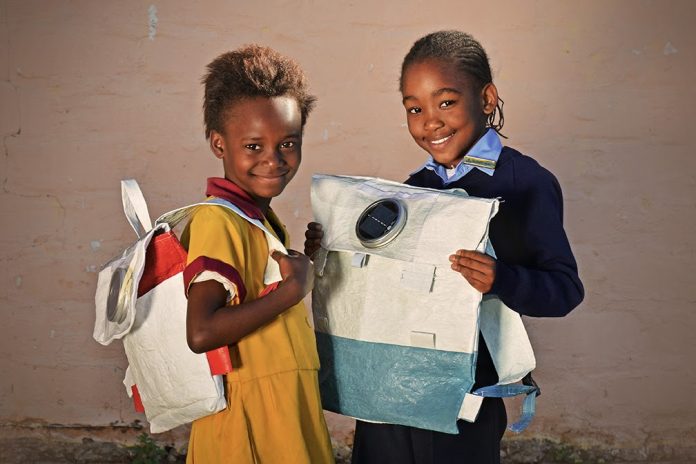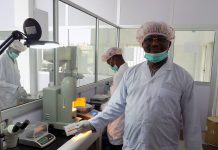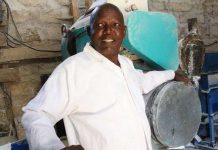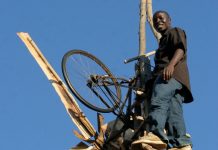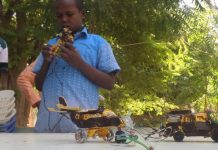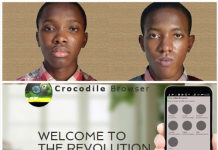(A column highlighting scientific, technological, engineering, and design innovation in Africa)
South African Thato Kgathlanye, 21-year-old social entrepreneur, used recycled plastic shopping bags and solar technology to create school bags that serve as a source of light that students in homes or communities with no electricity can use to study.
Kgathlanye and her team recycle plastic shopping bags, using a high temperature to fuse the bags into the durable, waterproof textile with which the school bags are made. A solar panel integrated into each “repurposed schoolbag” charges up during the day as the student walks to school and transforms into a lantern at night, providing up to 12 hours of light. During the day, the solar panel and retro-reflective material in the textile act as a reflector, making children more visible to vehicle drivers.
Kgathlanye and Rea Ngwane, her 22-year-old business partner, now run a factory with eight full-time employees who manufacture the bags and numerous plastic bag collectors. She collaborates with “giving partners”— corporate entities and individuals — who purchase and distribute the bags at schools where students lack basic supplies and walk long distances to and from home.
Repurpose Schoolbags is the first venture of Rethaka Trading, a company Kgathlanye and Ngwane established three years ago to combine business and social good. The venture addresses some of South Africa’s most nettlesome social challenges: job creation, waste management, road safety, and a low-cost but safe and environment-friendly source of light.
* Unemployment in South Africa stood at 25.4 percent in the third quarter of 2014.
* Plastic pollution accounts for up to 50 percent of Africa’s pollution, posing a major threat to fishing, wildlife, livestock, farming, shipping and tourism.
* The South African government estimates that 11.4 million students walk to school each day, braving “the 5 a.m. darkness and cold on their walk to school, just to get a chance to raise their hand in class.” Three children die daily on South African roads.
* Typically, kerosene lanterns and other dangerous alternative means of lighting are used in homes without electricity. Indoor air pollution from kerosene lamps causes around 400,000 deaths per year in sub-Saharan Africa.
Kgathlanye studied marketing at the Vega School of Brand Leadership in South Africa. She won the Inventor’s Garage competition at the 2014 South Africa Innovation Summit, and second prize ($15,000) in the 2014 Anzisha Prize competition. She is seeking more corporate partnerships for mass production and distribution.


